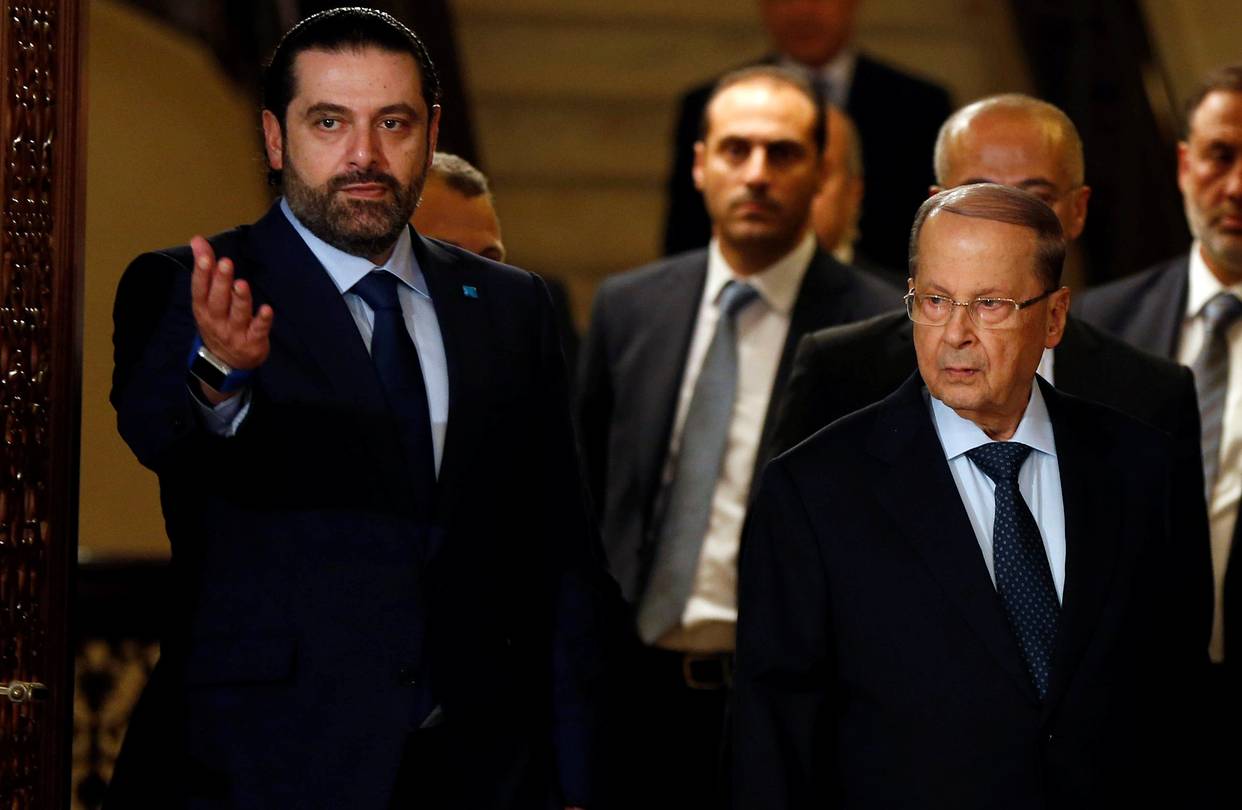Alwaght- Earlier this month, Michel Aoun, the newly-picked president of Lebanon, accepted resignation of the Prime Minister Tammam Salam and commissioned Saad Hariri, the leader of the Future Movement, to form new government.
However, up to now the prime minister-designate failed to reach a conclusion after consultations with political parties in the country. This comes while the agreements reached between the political sides in the time of picking Michel Aoun as president were supposed to remove hurdles ahead of Hariri for the cabinet formation and naming the new government ministers.
In his meeting with President Aoun a couple of days ago, Hariri said that his efforts to form the new government will rid his country of its foreign policy crisis. He, however, admitted that his attempts in the course of cabinet formation faced some obstacles whose "creators are known to all."
The fact is that the problems and obstacles that Hariri has ahead of his way to form new government in the country derive from the tensions and conflict of ideas between the different leaders of political parties and groups. Their rifts essentially originate from the way of distribution of the cabinet seats and share of key political parties and groups in the government. The significance of presence of the political parties in the Hariri-led government doubles because it is set to finalize the mechanism of the election law to prepare the ground for parliamentary election in 2017.
A part of the difficulties and impediments that block way of formation of a new Lebanese government returns to the rifts the prime minister-designate has with the parliament’s speaker Nabih Berri. Hariri agreed to give the Ministry of Public Works and Transportation to the party of Samir Geagea, the executive chairman of the Lebanese Forces, while Nabih Berri's party was offered the Ministry of Public Health, something Berri rejected to accept, insisting that his party should be offered the Ministry of Public Works and Transportation. On the other side, the same discord exists between Hariri and Suleiman Frangieh, the head of Marada Movement, who demanded such ministries as communication, energy, or public works and transportation to be given to his party. These demands by different sides have made it difficult for Hariri to finalize which party will get the Ministry of Public Works and Transportation, especially that many political groups argue that Samir Geagea is not in a proper political position to reserve the right to select his favorite ministry posts.
Another issue that hampers government formation in Lebanon is the president’s request to get two Muslim ministers; one Shiite and one Sunni, a process that will urge accords with both Speaker Berri's party and Hezbollah.
It is noteworthy that before the start of presidency of Michel Aoun and start of talks about forming a new government and writing new election law, Hezbollah had quit the political game. This means that Hezbollah is not intending to mediate on the relations between the president and the new PM with the parliament’s speaker. In other words, Hezbollah sees its duty done after it contributed to choosing Michel Aoun as president of the country and ending the power vacuum that plagued the country for more two and half a years. It now sees the president and the PM to shoulder their responsibility of eliminating the remaining sticking points.
What Lebanon needs most in the present conditions is an efficient government to tackle the economic problems that the country has been grappling with for a fairly long time. Challenges like rubbish collection crisis, producing oil and gas from the reserves discovered in the Lebanese territorial waters, the political tensions that troubled the decision making process in the country all need to be addressed by the new government. Most importantly, since 2009 Lebanon failed to hold parliamentary elections, and no government was formed based on the parliamentary elections results.



























